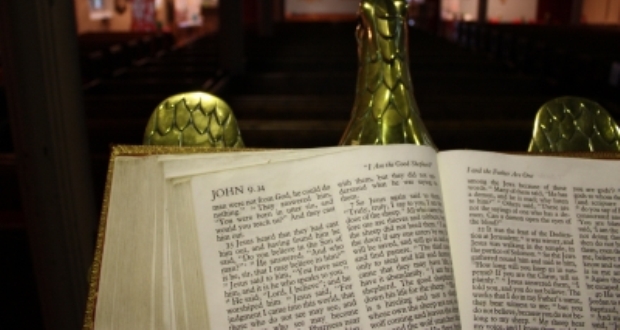Man’s Desire For God

Some time ago, I wrote an article entitled “No Jesus No Peace! – Know Jesus, Know Peace!” In that post we looked at mans quest to seek fulfillment outside of God; and how that has been, and will continue to be a total failure. In one of the most popular truths written by St. Francis of Assisi, he wrote, “You have made us for yourself, O Lord, and our heart is restless until it rests in you.” Every single one of us were made by Almighty God – The Creator. Regardless of where we’re from, the color of our skin, the language we speak, or all the other things we often use to differentiate one from another – we were all made by God and for God. That’s a fact and nothing can change that. It is this truth that will explain why no matter how we try to fill ourselves with the things of this world, there is and will always be an emptiness within. No matter how may new gadgets we have, how much alcohol we consume, how many sex partners we have, how much wealth we have, if we do not have God in our lives, there will always be a deep longing and emptiness.
Here is what the Catechism Of The catholic Church tells us about that:-.
(27) The desire for God is written in the human heart, because man is created by God and for God; and God never ceases to draw man to himself. Only in God will he find the truth and happiness he never stops searching for:
The dignity of man rests above all on the fact that he is called to communion with God. This invitation to converse with God is addressed to man as soon as he comes into being. For if man exists it is because God has created him through love, and through love continues to hold him in existence. He cannot live fully according to truth unless he freely acknowledges that love and entrusts himself to his creator.
(28) In many ways, throughout history down to the present day, men have given expression to their quest for God in their religious beliefs and behaviour: in their prayers, sacrifices, rituals, meditations, and so forth. These forms of religious expression, despite the ambiguities they often bring with them, are so universal that one may well call man a religious being:
From one ancestor [God] made all nations to inhabit the whole earth, and he allotted the times of their existence and the boundaries of the places where they would live, so that they would search for God and perhaps grope for him and find him – though indeed he is not far from each one of us. For “in him we live and move and have our being.”
(29) But this “intimate and vital bond of man to God” (*GS 19 # 1) can be forgotten, overlooked, or even explicitly rejected by man. Such attitudes can have different causes: revolt against evil in the world; religious ignorance or indifference; the cares and riches of this world; the scandal of bad example on the part of believers; currents of thought hostile to religion; finally, that attitude of sinful man which makes him hide from God out of fear and flee his call.
(30) “Let the hearts of those who seek the LORD rejoice.” Although man can forget God or reject him, He never ceases to call every man to seek him, so as to find life and happiness. But this search for God demands of man every effort of intellect, a sound will, “an upright heart”, as well as the witness of others who teach him to seek God.
You are great, O Lord, and greatly to be praised: great is your power and your wisdom is without measure. And man, so small a part of your creation, wants to praise you: this man, though clothed with mortality and bearing the evidence of sin and the proof that you withstand the proud. Despite everything, man, though but a small a part of your creation, wants to praise you. You yourself encourage him to delight in your praise, for you have made us for yourself, and our heart is restless until it rests in you.
CCC 27-30
The Word of God tells us in John 10: 10, “I have come that you may have life and have it to the full.” This is very clear. Again in Matthew 7: 24 – 27, the Word of God tells us in parable, about two kinds of people – those who build their lives on sand and those who build their lives on a solid rock. Those who built their lives on sand, experienced the great disappointment of un-fulfillment and emptiness, in spite of all they had. On the other hand, those who built their houses – their lives – on the rock, stood firm against the gale forces of life. They experienced hardship, but stood firm! The challenge here is for us to build our lives on the Rock that is God’s Love, and not on the shifting sands of worldliness.
Jesus said, “”I am the vine, you are the branches. Whoever remains in me, with me in him, bears fruit in plenty; for cut off from me you can do nothing.”





